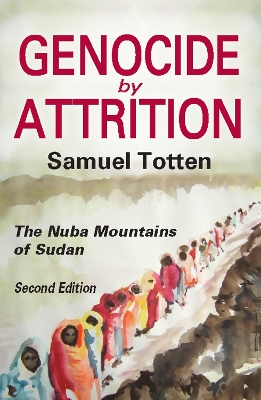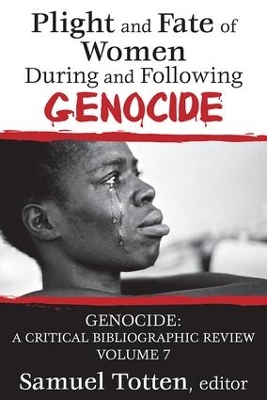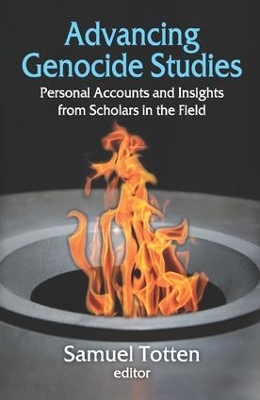Genocide Studies
3 total works
Few people know much about the government of Sudan's genocidal attack against the people of the Nuba Mountains in the late 1980s and early 1990s. This volume documents this atrocity, focusing on crimes that even human rights activists and genocide scholars do not fully understand. Its detailed examination of the forced starvation of the Nuba Mountains people provides a powerful statement, and will be a resource for professionals who teach the subject.
Genocide by Attrition provides a solid sense of antecedents to the genocidal actions in the Nuba Mountains. It introduces the main actors, describes how the Nuba were forced into starvation by their government, and tells how those who managed to survive did so. Totten provides a valuable resource for those who understand genocide as a state crime.
The interviews provide in-depth stories and revelatory information about what Totten characterizes as genocide by attrition. Among the themes that link most of the interviews are: the discrimination against and disenfranchisement of the Nuba by the government; the destruction of villages and farms; and the impact of the forced starvation. The book also documents the anger and frustration of the Nuba Mountains people at being left out of the Comprehensive Peace Agreement signed between the South and the North, and their ongoing fear that the government might once again carry out a genocidal assault against them.
The plight and fate of female victims during the course of genocide is radically and profoundly different from their male counterparts. Like males, female victims suffer demonization, ostracism, discrimination, and deprivation of their basic human rights. They are often rounded up, deported, and killed. But, unlike most men, women are subjected to rape, gang rape, and mass rape. Such assaults and degradation can, and often do, result in horrible injuries to their reproductive systems and unwanted pregnancies. This volume takes one stride towards assessing these grievances, and argues against policies calculated to continue such indifference to great human suffering.
The horror and pain suffered by females does not end with the act of rape. There is always the fear, and reality, of being infected with HIV/AIDS. Concomitantly, there is the possibility of becoming pregnant.Then, there is the birth of the babies. For some, the very sight of the babies and children reminds mothers of the horrific violations they suffered. When mothers harbor deep-seated hatred or distain for such children, it results in more misery. The hatred may be so great that children born of rape leave home early in order to fend for themselves on the street.
This seventh volume in the Genocide series will provoke debate, discussion, reflection and, ultimately, action. The issues presented include ongoing mass rape of girls and women during periods of war and genocide, ostracism of female victims, terrible psychological and physical wounds, the plight of offspring resulting from rapes, and the critical need for medical and psychological services.
Advancing Genocide Studies follows in the footsteps of the editor's earlier volume, Pioneers of Genocide Studies. Here a new generation of scholars presents personal essays that reveal their motivation to study genocide, the passion that drives them to continue its study, their primary scholarly interests and efforts, and their perspective on the field as it currently stands.
The contributors come from diverse backgrounds, numerous different nations and various disciplines: Kjell Anderson (The Netherlands, criminology); Yair Auron (Israel, history and education); Taner Akcam (Turkey and United States, history and sociology); Alexander Alvarez (United States, criminology); Gerry Caplan (Canada, history); Craig Etcheson (United States, international relations); Maureen Hiebert (Canada, political science); Adam Jones (Canada, political science); Henry Theriault (United States, philosophy); Samuel Totten (United States, history and political science); and Ugor Ungor (The Netherlands, history and sociology).
All the contributors are well known in the field of genocide studies, and all have made important contributions to this area. Variously, they have done important theoretical work, produced new findings vis-a-vis old cases of genocide, and are pursuing new issues and topics within the field of genocide studies. Many have worked "on the ground" and bring a sense of immediacy to various crises.


